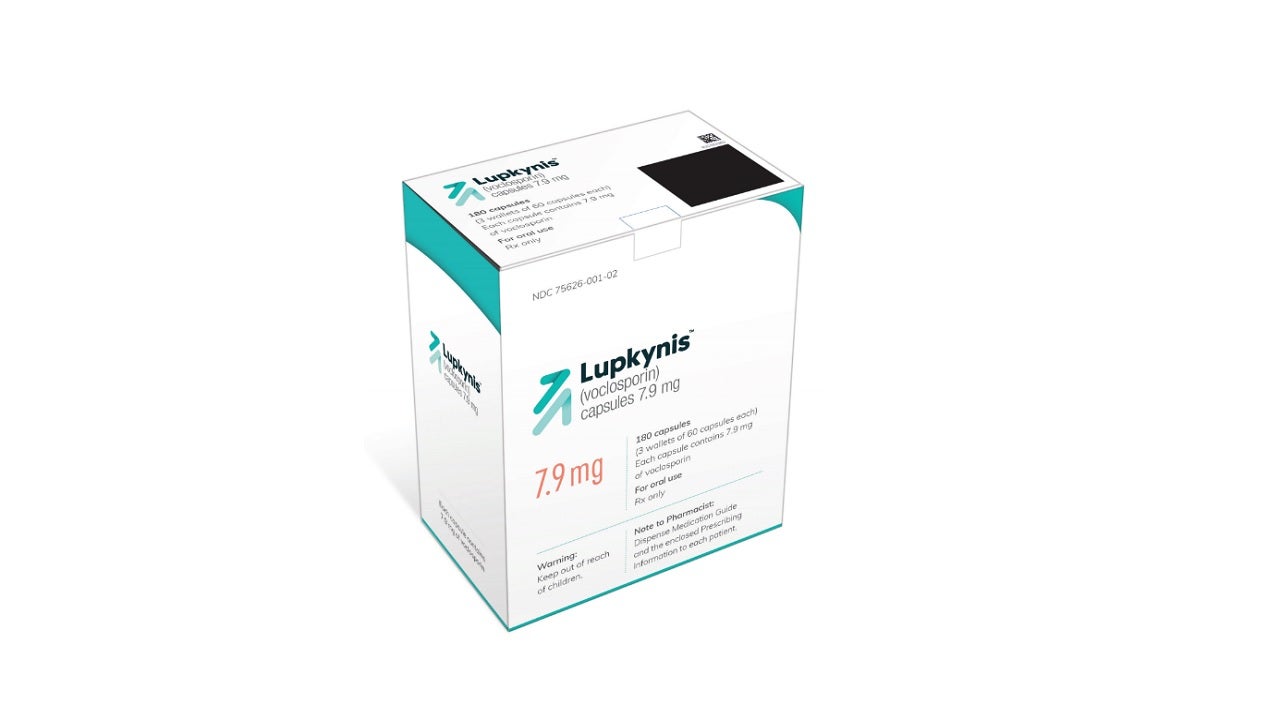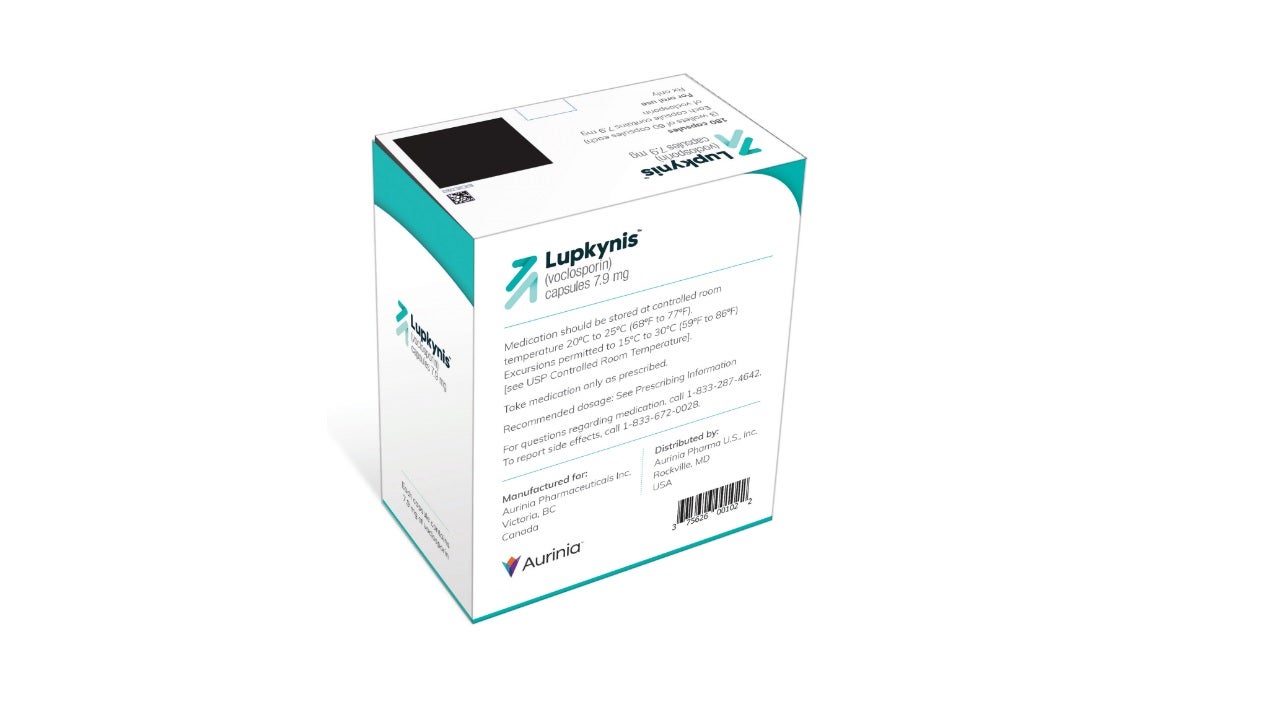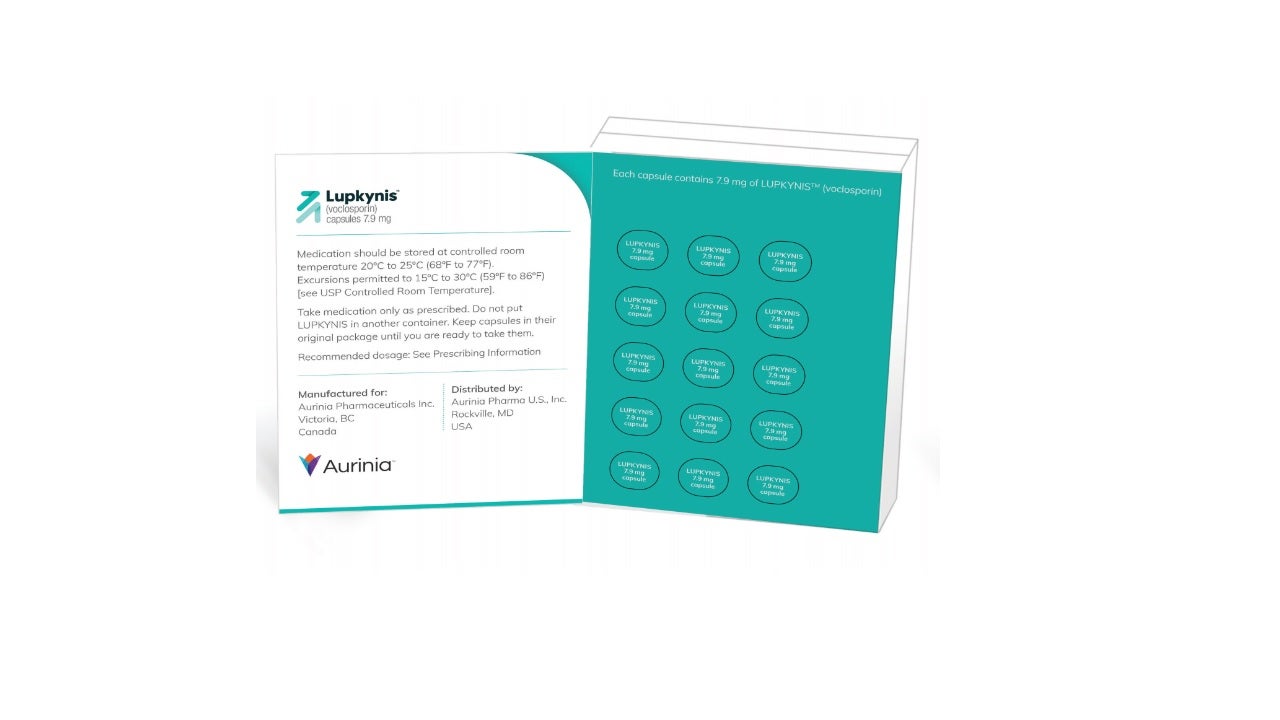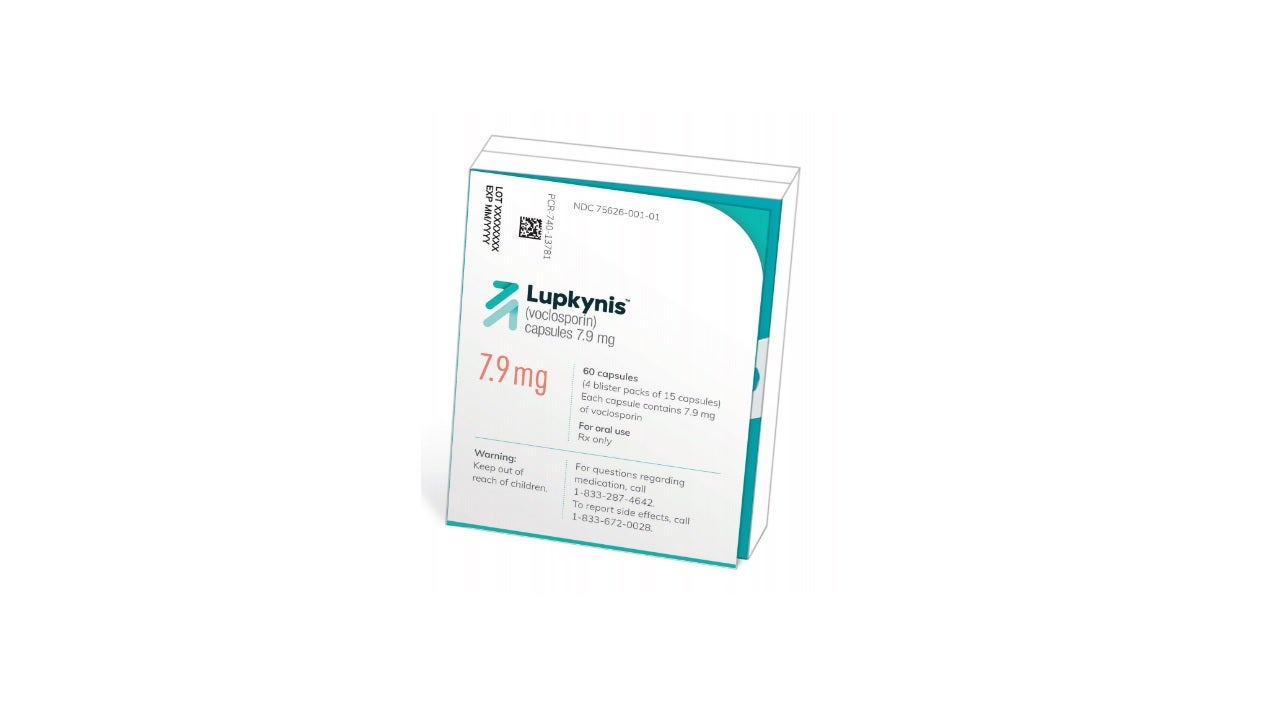LUPKYNIS™ (voclosporin) is a calcineurin-inhibitor immunosuppressant indicated for the treatment of adult patients with active lupus nephritis (LN).
It is the first oral therapy for LN to be approved by the US Food and Drug Administration (FDA) in combination with a background immunosuppressive therapy regimen.
Developed by Aurinia Pharmaceuticals, LUPKYNIS is available as oval, pink or orange coloured soft gelatin capsules in 7.9mg voclosporin dosage strength.
LUPKYNIS approvals
In May 2020, Aurinia submitted a new drug application (NDA) for voclosporin as a potential treatment for LN to the FDA. The application was accepted under priority review in July 2020.
In December 2020, Aurinia entered a partnership and licensing agreement with Otsuka Pharmaceutical for the development and commercialisation of voclosporin for treating LN in the European Union (EU), Japan, the UK, Russia, Switzerland, Norway, Belarus, Iceland, Liechtenstein and Ukraine.
In January 2021, the FDA approved LUPKYNIS (voclosporin) with a background immunosuppressive therapy regimen to treat adult patients with active LN. The drug had obtained fast track designation from the FDA in 2016.
Aurinia developed and implemented Aurinia Alliance™, a patient support programme, with nurse case managers. The programme was set up to offer customised training resources and assistance to LUPKYNIS patients and healthcare providers in navigating insurance and medical costs for the treatment.
Otsuka plans to file a marketing authorisation application (MAA) for voclosporin with the European Medicines Agency (EMA) in the second quarter of 2021, and will also file an application with Japan’s Pharmaceuticals Medical Devices Agency (PDMA).
Aurinia will establish a dedicated state-of-the-art manufacturing facility called a monoplant. This will be established within Lonza’s existing small molecule active pharmaceutical ingredient (API) facility in Visp, Switzerland, under a collaborative agreement.
The monoplant will be equipped with cutting-edge manufacturing equipment to produce voclosporin. The site’s existing capacity will also be expanded to ensure supply security to satisfy future commercial demand. The monoplant is expected to begin operations in 2023.
Lupus nephritis (LN) causes and symptoms
LN is an autoimmune disease characterised by serious, chronic and progressive inflammation of the kidneys caused by systemic lupus erythematosus (SLE or lupus).
LN can affect up to 60% of lupus patients. Whenever the kidneys get inflamed, they lose their ability to act properly and can leak protein.
If it is not adequately controlled, LN can cause lasting and irreversible tissue damage within the kidney, leading to kidney failure.
Around 135,000 people are living with LN in the US, with women more likely to develop the condition than men. The symptoms can be lengthy and difficult to diagnose. It may cause fatigue, hypertension and protein loss in the urine.
Voclosporin’s mechanism of action
Voclosporin is an immunosuppressant that binds and inhibits calcineurin, a type of protein found in the body. Calcineurin is responsible for activating T-cells, which play a key role in the immune system.
The inhibition of calcineurin results in T-cell mediated immune responses being blocked, which reduces inflammation in the kidneys.
Animal studies have confirmed a non-immunological role for calcineurin inhibition in kidney function by stabilising the actin cytoskeleton and stress fibres in podocytes, resulting in improved podocyte integrity in glomeruli.
Clinical trials on LUPKYNIS
The FDA approval of LUPKYNIS is based on the overall outcomes of two late-stage global clinical studies, namely the pivotal AURORA Phase III study and the AURA-LV Phase II study.
The safety and efficacy of the drug were studied in the AURORA clinical study, in which 357 patients with LN were enrolled. The patients were randomised to receive either LUPKYNIS 23.7mg or placebo twice a day.
The primary endpoint of the study was the patients’ achieving the complete renal response at week 52. At week 52, 73% of the patients treated with LUPKYNIS achieved a complete renal response, compared to 40% of the patients who were given the placebo.
Both the studies enrolled a total of 533 patients, who were randomised to receive either LUPKYNIS 23.7mg or placebo twice daily used with standard of care (SoC). The studies demonstrated improved outcomes in LUPKYNIS-treated patients when combined with typical SoC, mycophenolate mofetil (MMF) and low dose corticosteroids on multiple criteria for up to 52 weeks.
Patients receiving LUPKYNIS had a 50% reduction in urine protein creatinine ratio (UPCR) twice as quickly as those who received SoC. A greater proportion of LUPKYNIS-treated patients had a complete renal response at 24 weeks compared with those who received SoC.
Patients administered with LUPKYNIS had better response rates in all parameters in all immunologically active groups of LN studied.
The most common adverse reactions (>3%) reported in the patients during clinical trials were reduced glomerular filtration rate, hypertension, diarrhoea, headache, anaemia, cough, urinary tract infection, upper abdominal pain, dyspepsia, alopecia, renal dysfunction, abdominal pain, mouth ulceration, nausea, tremor, acute kidney injury and decreased appetite.






